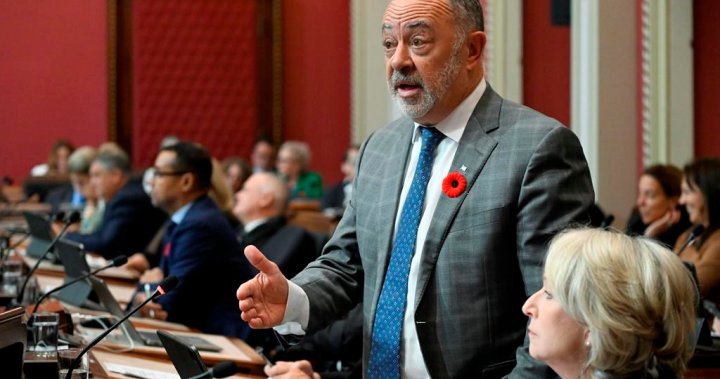Quebec’s health minister, Christian Dubé, has introduced a significant piece of legislation aimed at addressing the persistent issue of physician shortages in the province. The proposed bill mandates that all new doctors trained in Quebec will be required to work within the provincial public health network for a minimum of five years post-graduation. This legislative effort is a response to rising concerns about an increasing number of doctors transitioning from the public healthcare system to private practice or moving out of the province entirely. The stark reality is that while healthcare services are essential to the population, there has been a noticeable trend among newly trained physicians seeking opportunities in less regulated and potentially more lucrative private sectors.
Financial implications also accompany this legislation. Should these new doctors decide to pursue careers in private practice or relocate outside Quebec before fulfilling their five-year commitment, they would be subject to hefty fines, reaching up to $200,000 per day. Dubé emphasizes the economic investment in each physician, estimating that training a single doctor, including their residency, costs the government roughly between $435,000 and $790,000. Consequently, he asserts that there is a moral obligation for these physicians to serve the public, as they essentially benefit from taxpayer resources throughout their educational journey.
The rising trend of doctors leaving the public system has been alarming, with reports indicating a 70% increase in the number of doctors opting for private practice since the year 2020. This shift is particularly pronounced among newer physicians, who, upon completing their training, are increasingly drawn to private sector opportunities. Dubé noted that between 2015 and 2017, a significant number of graduates—approximately 400 out of 2,536—decided to exit Quebec for better prospects elsewhere. This highlights a systemic issue within the local healthcare landscape, where working conditions, compensation, and overall job satisfaction may be contributing factors to this exodus.
Interestingly, the bill has garnered bipartisan support, with members of opposition parties expressing their approbation. This suggests a consensus on the need to manage and retain healthcare professionals in the province, underscoring the urgency of the situation. However, discussions around the proposed legislation will not commence until the next legislative session, scheduled for January. The delay reflects some level of procedural necessity in governmental operations, but it also emphasizes the complex nature of healthcare policy-making.
Moreover, the current statistics paint a concerning picture of Quebec’s healthcare workforce. As of now, there are 2,355 doctors who trained in Quebec practicing in Ontario, with a significant number (1,675) having graduated from the prestigious McGill University. This migration of talent poses challenges not only to the staffing levels within Quebec’s health system but also raises questions about the effectiveness of current strategies relying on public funding for medical training without adequate return on investment in local healthcare services.
In summary, the legislation introduced by Quebec’s Health Minister seeks to reestablish a critical balance within the healthcare system by compelling new physicians to serve their community for a defined period. This approach attempts to mitigate the growing trend of new graduates exiting the public system for private practice or other provinces. By imposing stringent penalties and emphasizing the financial investment made in medical training, the government hopes to foster a more robust public healthcare network, ensuring that the needs of the population are met effectively and sustainably.










